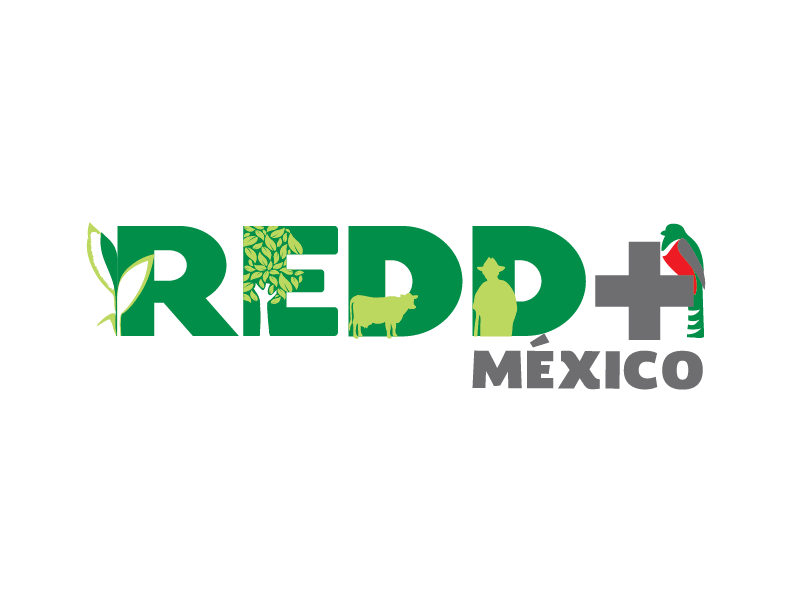Under the United Nations Framework Convention on Climate Change (UNFCCC), parties of the UN are working towards the ultimate objective of stabilizing greenhouse gas concentrations in the atmosphere at a level that will prevent dangerous human interference with the climate system. Negotiations take place at annual Conference of Parties (COP) meetings, and the COP — comprised of delegations from all states that are members of the UNFCCC — also serves as the primary UN decision making body on climate issues. Underneath these negotiations are several frameworks and treaties, each containing their own unique policies for emission reductions. Through these frameworks, UN member nations have agreed to 2020 emission targets. Beyond 2020, there is a universal legal agreement on climate change to be finalized at the Conference of the Parties in Paris (COP21) later this year. One proposed mechanism for the universal agreement, Reducing Emissions from Deforestation and Land Degradation in Developing Countries (REDD+), which was introduced in 2005. REDD+ is a means to abate the roughly 20% of emissions from deforestation — where natural forests are cleared through logging and/or burning — and land degradation, where the value of a biophysical environment is affected by human-induced processes on the land.[1] Successful implementation of REDD+ requires developing nations to meet several UNFCCC safeguards established during the 16th Conference of the Parties (COP16). These so-called “Cancun Safeguards” are the guiding principles for nation-specific strategies to combat deforestation and land degradation, while simultaneously protecting the rights of indigenous populations and communities. It was not until The 19th Conference of the Parties in Warsaw, Poland (COP19) that an agreement was made that required REDD+ countries to provide a report every two years on how the Cancun Safeguards are promoted and supported. Failure to address these safeguards would jeopardize a partner-countries ability to participate in global carbon-credit markets — which are markets where a country, corporation or individual can purchase credits in order to offset their own emissions. Although the implementation of REDD+ would significantly improve climate policy, challenges remain in the ability of developing nations to sufficiently address the Cancun Safeguards. Specifically, Mexico’s inadequate legal framework for addressing the Cancun Safeguards exemplifies the questionable short-term viability of REDD+ implementation and its potential role in US climate policy.
There have been some early efforts by individual US states to incorporate REDD+ into existing climate policy as a pilot program for the universal agreement. California’s passage of the Global Warming Solutions Act in 2006 made efforts to incorporate a REDD+ carbon credit partnership with Brazil and Mexico. If California were to include REDD+ credits in their existing cap-and-trade system, they would be the first state in the world to recognize REDD+ offsets as part of a carbon-trading scheme, potentially paving the way for its inclusion in other cap-and-trade systems. However, the recent rejection of REDD+ by more than 20 international indigenous organizations and community groups at the most recent COP20 in Lima, Peru calls into question the effective implementation of REDD+.
The Cancun Safeguards are a critical component of REDD+. Designed to protect biodiversity, forest regression, indigenous rights, and other stakeholders, these safeguards demand compliance, as failure to heed them would severely inhibit a country’s ability to access financing for further reforestation and forest protection. The Cancun Safeguards include:
- Consistency with objectives of national forest programmes and relevant international conventions and agreements;
- Transparent and effective national forest governance structures;
- Respect for the knowledge and rights of indigenous peoples and members of local communities
- The full and effective participation of relevant stakeholders, in particular indigenous peoples and local communities;
- Conservation of natural forests and biological diversity and enhancement of other social and environmental benefits;
- Actions to address the risks of reversals;
- Actions to reduce the displacement of emissions.[2]
Since the development of these safeguards, significant controversy has risen over the ability of developing nations to implement nation-specific legal frameworks to meet their requirements. At COP20, there was pressure by nongovernmental organizations to reject REDD+, led primarily by indigenous community organizations. This concern has grown from the failure of developing nations to address indigenous territorial sovereignty, customs, land tenure, corruption, and ineffective legal structures to address UNFCCC safeguards.[3] This struggle is epitomized in an indigenous-led call to action against REDD+ in at COP20, with an excerpt from their letter to the public below:
“One clear example of how harmful REDD+ projects can be is the agreement signed between the states of California in the United States, Chiapas in Mexico and Acre in Brazil, which aims to allow industries in California to continue polluting in exchange for carbon credits purchased through REDD+ projects in Acre and Chiapas. Although Acre is usually presented to the world as the ‘model for the green economy’, the reality is different: carbon trading which facilitates timber exploitation have been devastating territories and violating the rights of the forest peoples.”[3]
The examples cited are strong indicators of the inability of countries to address indigenous concerns and Cancun Safeguards within the REDD+ process. To date, many REDD+ pilot projects have been organized within indigenous communities that currently experience land tenure insecurity. These projects have been overshadowed by the negative consequences of historical forestry development projects on indigenous lands, such as the sustainable and pro-poor development projects in the Amazon. According to a study on REDD+ in the Amazon, such projects “had surprisingly few lasting positive effects on the local communities.”[4] These pilots contained uneven benefit-sharing, and often favored private actors over indigenous communities.
As a result of previous failures, the ability of developing nations to implement REDD+ is still unclear. An assessment by Mexico Alliance REDD+, an organization dedicated to building capacity and generating knowledge for REDD+ objectives, found several failures within Mexico’s legal frameworks to address UNFCCC safeguards, giving credence to indigenous community groups’ concerns.[5] With regard to transparency and effectiveness of governance, the Mexican legal framework had a “lack of provisions to facilitate local communities access to information, ineffective prevention of corruption in the forestry sector, lack of guidelines on profit distribution, provisions on gender equality are not fully implemented, access to justice is not guaranteed in practice; institutional coordination does not work in practice.” In addition to issues with transparency and effective governance, the report found that Mexico’s legal framework does not provide a clear definition for “indigenous peoples,” “local communities,” or “traditional knowledge.” Moreover, there are no laws “to operationalize the rights of indigenous peoples and local communities and respect for customs,” thus failing to address the UNFCCC safeguard for respect for the knowledge and rights of indigenous peoples and local communities. Without recognizing legitimate ownership of land by indigenous peoples, Mexico, whether with intention or not, has excluded relevant stakeholders from the REDD+ process.
The inclusion of relevant stakeholders is the fourth Cancun Safeguard established within the UNFCCC. Based on the analysis made by Mexico Alliance REDD+, participation in environmental decision-making is not regulated, there is no framework for identification of stakeholders, and there is no regulation with regard to free, prior, and informed consent.[5] Though progress has been slow to protect indigenous land ownership, customs and rights, the Mexican government has been pursuing reform since 2012.[6] Simple steps that could be made include updating land tenure rights to include not only male heads of house but also widows, children, and neighbors and people who possess and use the land.
With respect to Mexico’s efforts in meeting the Cancun Safeguard for biodiversity and forest conservation, Mexico neither defines biodiversity nor restricts forest conversion from natural forests to plantations.[5] There are “significant gaps in terms of technical assistance for forestry,” and Mexico does not address drivers for forest deforestation within their legal framework or provide support for independent forestry monitoring.[5]
Under the current legal structure of Mexico’s REDD+, the opportunity for exploitation of small indigenous landholders echoes similarities to previous projects in the Amazon. A review of REDD+ partner-countries has found that more than 10 REDD+ partners, including Mexico, have violated the right to free, prior and informed consent and the right of civil society and indigenous peoples to participate in REDD+ processes.[7]
While there are high hopes for the inclusion of REDD+ carbon credits in markets by the end of 2015 — as well as laudable efforts by California to be the first state to include these credits — the legal grounds for developing nations like Mexico to meet UNFCCC Cancun Safeguards is questionable at best. With implementation deadlines ahead, a rushed advance of REDD+ poses risk not only to indigenous peoples but also the long term viability of REDD+ programs. Previous forestry development projects have run aground with financial failure as a result of the drying of initial program funding and failure to address indigenous land ownership concerns. With many states leaning towards a carbon credit system to make up for gaps in emission goals, the possibility of inclusion of REDD+ in these systems is at stake. In the case of Mexico, these issues have been identified but further efforts must be made into the development of resources, legal definitions, and protections in order to make the necessary changes.
[1] Arhin, Albert, “Safeguards and Dangerguards: A Framework for Unpacking the Black Box of Safeguards for REDD+” Forest Policy and Economics 45 (2014): 25
[2] Peskett, Leo, Todd, Kimberly, “Putting REDD+ Safeguards and Safeguard Information Systems into Practice” UN-REDD Programme Policy Brief Issue #03 (2015): 2
[3] Signatories to REDD+ Call to Action, “TO REJECT REDD+ AND EXTRACTIVE INDUSTRIES TO CONFRONT CAPITALISM AND DEFEND LIFE AND TERRITORIES” Petition (2014)
[4] Pokorny, B., I. Scholz, and W. de Jong., “REDD+ for the poor or the poor for REDD+? About the limitations of environmental policies in the Amazon and the potential of achieving environmental goals through pro-poor policies.” Ecology and Society 18(2): 3.
[5] Allianza MéxicoREDD+, “Progress and Recommendations for the Design of a National REDD+ Safeguards for Mexico,” Policy Brief: 5-6.
[6] Romero, Purple, “This goes far beyond REDD+” — Mexico’s legal preparedness and cultural take on REDD+ Safeguards, REDD+ Safeguards, October 18, 2013, http://reddplussafeguards.com/?p=317 Accessed March 24, 2015.
[7] Carbon Trade Watch, Violation of Free, Prior, and informed Consent by UN-REDD and REDD, Carbon Trade Watch, May 29th, 2013. http://www.carbontradewatch.org/articles/violation-of-free-prior-and-informed-consent-by-un-redd-and-redd.html Accessed March 24, 2015.



